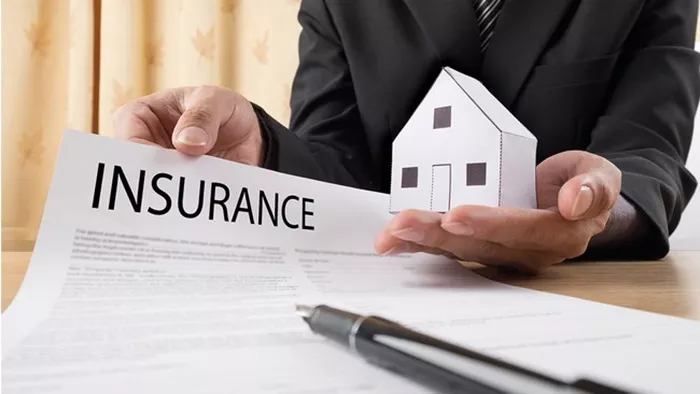Home insurance is designed to protect homeowners from various risks, including property damage, liability claims, and loss of personal belongings. However, there are specific actions and circumstances that can invalidate a home insurance policy, leaving homeowners vulnerable when they need coverage the most. This article explores the various factors that can void home insurance policies, providing homeowners with the information they need to maintain their coverage effectively.
1. Understanding Home Insurance Policies
1.1 What is Home Insurance?
Home insurance, often referred to as homeowner’s insurance, is a contract between the homeowner and the insurance company. It provides financial protection against specific risks, such as theft, fire, and natural disasters.
1.2 Types of Coverage
Home insurance policies typically include several types of coverage:
Dwelling Coverage: Protects the structure of the home.
Personal Property Coverage: Covers personal belongings inside the home.
Liability Coverage: Protects against legal claims from injuries or damages to others.
Additional Living Expenses (ALE): Covers costs for temporary housing if the home is uninhabitable.
2. Common Reasons for Invalidating Home Insurance
2.1 Misrepresentation and Fraud
2.1.1 Providing False Information
When applying for home insurance, homeowners must provide accurate information regarding their property. Misrepresentation, whether intentional or accidental, can lead to a policy being invalidated.
2.1.2 Failure to Disclose Information
Homeowners are required to disclose pertinent information about their property, such as prior claims, renovations, or structural issues. Failing to do so can invalidate coverage.
2.2 Unreported Changes to the Property
2.2.1 Major Renovations
Significant renovations or modifications to the home, such as adding a new room or converting a garage, must be reported to the insurer. Failure to inform the insurance company can result in coverage being voided.
2.2.2 Change in Property Use
If the homeowner changes the use of the property—such as renting it out without informing the insurer—this can lead to a policy being invalidated. Home insurance is designed for owner-occupied properties, and using the home for commercial purposes often requires a different type of policy.
2.3 Failure to Maintain the Property
2.3.1 Neglect and Deterioration
Insurers expect homeowners to maintain their properties adequately. If a home falls into disrepair—such as having a leaking roof or significant pest infestations—this could be grounds for invalidating a claim.
2.3.2 Safety Hazards
Homeowners must address safety hazards, such as broken stairs or malfunctioning smoke detectors. Failing to rectify these issues can invalidate coverage in the event of an accident or damage.
2.4 Non-Payment of Premiums
2.4.1 Lapse in Coverage
Homeowners must pay their premiums on time to maintain coverage. A missed payment can result in a lapse, rendering the policy invalid until the homeowner catches up on payments.
2.4.2 Grace Periods and Reinstatement
Most insurers offer a grace period for missed payments, but if the premium remains unpaid beyond this period, the policy can be canceled. Homeowners must be aware of their policy’s specific terms regarding grace periods.
2.5 Engaging in Illegal Activities
2.5.1 Criminal Activity
If a homeowner is involved in illegal activities—such as drug manufacturing or other crimes—their insurance policy can be voided. Insurers typically exclude coverage for properties involved in illegal acts.
2.5.2 Violating Local Laws
Homeowners must comply with local regulations and zoning laws. Violations can lead to policy invalidation, especially if the violations pose risks to the property.
3. Exclusions in Home Insurance Policies
3.1 Common Exclusions
Understanding what is excluded from home insurance policies is crucial. Common exclusions include:
Flood Damage: Most standard policies do not cover flood damage. Homeowners need separate flood insurance.
Earthquake Damage: Like flood coverage, earthquake insurance is often sold separately.
Maintenance Issues: Damage resulting from lack of maintenance is typically not covered.
3.2 Specific Policy Limitations
Each insurance policy has specific limitations that homeowners should review carefully. Understanding these limitations can prevent misunderstandings when filing a claim.
See also: Why is Home Insurance So High in Florida?
4. The Claims Process and Invalidations
4.1 Filing a Claim
When filing a claim, homeowners must provide accurate and truthful information. Inconsistencies or misrepresentations can lead to invalidation.
4.2 The Role of Adjusters
Insurance adjusters investigate claims to determine the validity. If they find discrepancies or issues that violate policy terms, they may deny the claim.
5. How to Avoid Invalidating Your Home Insurance
5.1 Regular Communication with Your Insurer
Homeowners should maintain open lines of communication with their insurance providers. Informing them of any changes to the property or personal circumstances can help avoid potential issues.
5.2 Documenting Property Changes
Keeping thorough records of any renovations, repairs, or changes to the property can provide valuable information when communicating with your insurer.
5.3 Regular Maintenance and Inspections
Performing regular maintenance and inspections of the property can prevent issues that might lead to policy invalidation. Keeping a log of maintenance activities is also beneficial.
5.4 Understanding Policy Terms
Homeowners should take the time to read and understand their policy documents. Familiarity with the terms, conditions, and exclusions can help prevent accidental violations.
6. What to Do If Your Policy is Invalidated
6.1 Understanding Your Rights
If a policy is invalidated, homeowners should understand their rights regarding the insurance contract. Reviewing the policy’s terms and conditions can clarify the situation.
6.2 Seeking Professional Advice
Homeowners may benefit from consulting with an insurance agent or attorney if they face policy invalidation. Professional guidance can help navigate complex issues.
6.3 Filing a Complaint
If a homeowner believes their policy was unjustly invalidated, they can file a complaint with the state’s insurance department. This can lead to a review of the insurer’s practices.
7. Conclusion
Understanding what invalidates home insurance is essential for homeowners to maintain their coverage effectively. By being proactive—communicating with insurers, documenting changes, and understanding policy terms—homeowners can avoid pitfalls that may lead to invalidation. With the right knowledge and practices, homeowners can protect their investments and ensure they have the coverage they need in times of crisis.
This outline can be expanded with detailed examples, statistics, case studies, and additional sections to meet the target word count of 5,000 to 7,000 words. If you need specific sections elaborated or additional topics included, let me know!




















